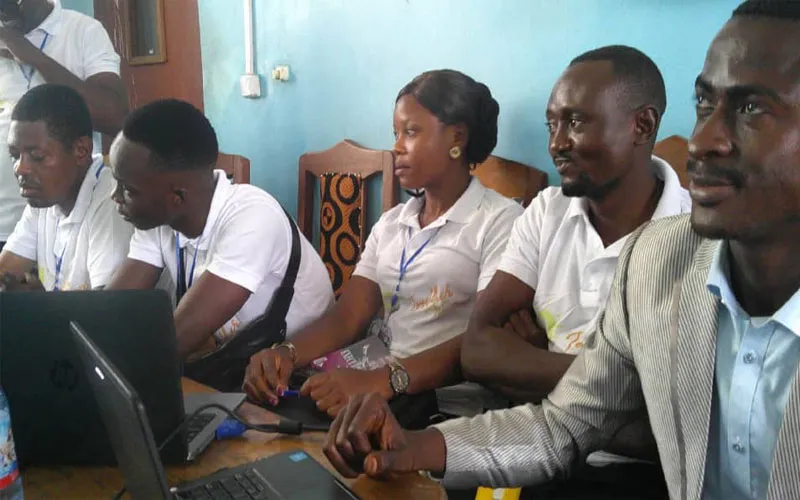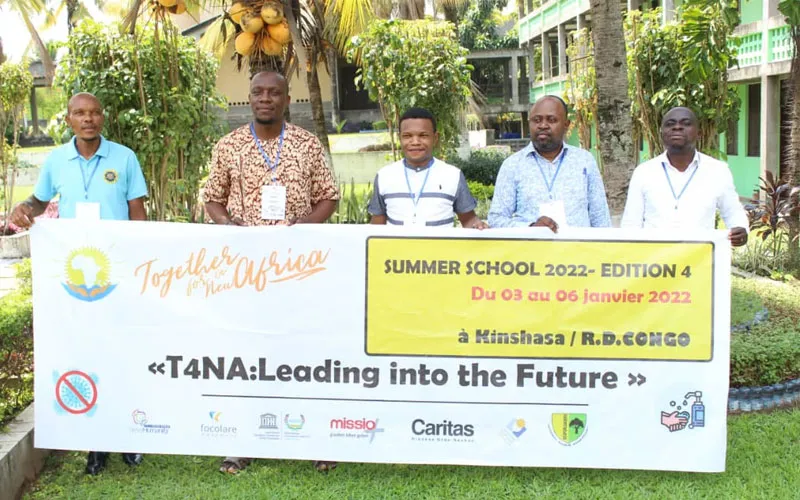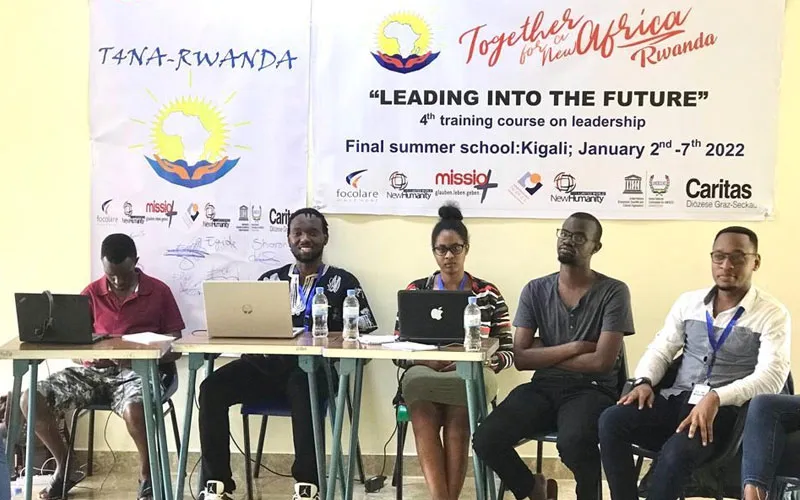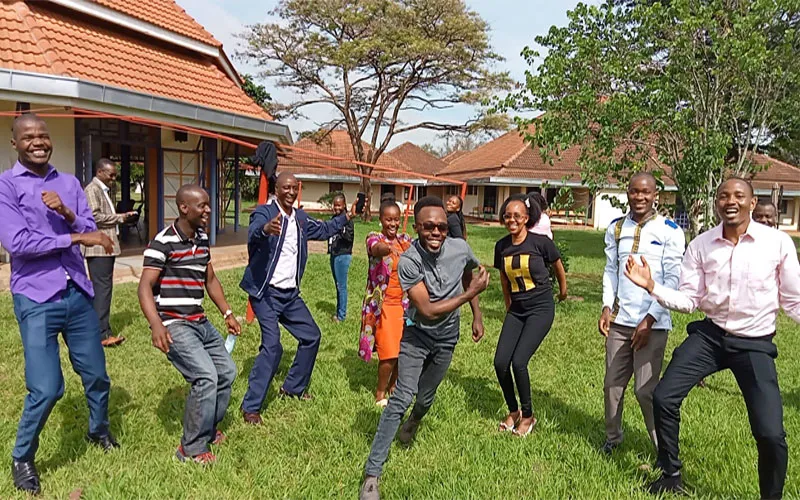According to Prof. Mbae, African systems were set in such a way that areas that belonged to the community were respected and highly protected. These were mostly natural resources including forests, hills and water bodies.
“No one was allowed to cultivate on hills. Forests were considered divine places and were therefore highly protected. In the spirit of Ubuntu; such places were considered community property and no single individual was allowed to benefit from them,” he said.
The Kenyan professor lamented that the environment is no longer respected as it was before. “We all contributed to conserving the environment. But we have now lost the sense of taking care of our common home. We no longer think as a community.”
“In the spirit of Ubuntu, we were wired to think of ‘I in Us’ and that ‘I only matter when I do things that matter to us’. But we are now embracing the capitalist thinking of ‘I in Me’ and it is unfortunate,” Prof Mbae said.
The official of T4NA lamented that African countries are on the receiving end of environmental pollution when other countries are responsible for most pollution.
(Story continues below)
 T4NA DRC. Credit: Together for a New Africa
T4NA DRC. Credit: Together for a New Africa
“Africa contributes very little to pollution yet it is us who are affected the most by drought, floods and other consequences of pollution,” Prof. Mbae said, and added, “It is in Africa that poverty levels have skyrocketed because of drought. Consequently, young people from Africa are dying, trying to leave the continent in search of greener pastures.”
The university professor underscored the need for African countries to think creatively as they seek industrialization in order “to avoid the mistakes made by the western countries.”
“Africa is far behind in terms of industrialization. But as we move forward, let us not repeat the mistakes that others have made. Let’s take into account the numerous opportunities we have with the sun, wind, and water in generating energy and try as much as possible to avoid using oil. This is a sacrifice that we all need to make for the good of our common home,” he said.
In a Wednesday, January 5 interview with ACI Africa, Prof. Mbae called on young African leaders to work with the people in their respective countries.
“Real change comes when one person shares the vision with everyone else. The leader recognizes the problem and because they are the vision carriers, they need to share it with others. Our young Africans should not wait to join parliament to bring change,” he said.
Prof. Mbae lauded the T4NA project, which he said stood out for being started by students.
“I have been in leadership training before and mostly, when we train leaders, it is us who design the program. The T4NA project is different. It was started by African students at Sofia University Institute who roped in educators from other universities,” he said.
The professor also revealed that he is in touch with a vibrant T4NA group of students in Kenya that is in touch with the leadership challenges and realities of the East African country.
Nelly Wanjiru who graduated in 2019 from Kenya’s Jomo Kenyatta University of Agriculture and Technology (JKUAT) and now works as an environmental supervisor at a construction project in Mombasa is one of the 15 T4NA participants from Kenya.
In an interview with ACI Africa, Nelly describes herself as an enthusiast of leadership in environment and considers the T4NA initiative as the perfect platform to hone her leadership skills.
“Here, we come together, all of us from various African countries and discuss pressing leadership issues in our respective countries. We also try to come up with practical solutions which we pass on to others in various sensitization programs,” Nelly told ACI Africa January 5.
In Kenya, T4NA participants have completed a variety of activities including charity work, cleaning and community awareness campaigns on leadership and the conservation of the environment.
At the height of COVID-19 in 2020, the group’s feeding program benefitted 30 families in Nairobi that were left vulnerable owing to the pandemic. Nelly said that the group is working on a project to create sustainable ventures for needy families in Nairobi.
 T4NA Congo Kinshasa. Credit: Together for a New Africa
T4NA Congo Kinshasa. Credit: Together for a New Africa
In Burundi, Adelard Kananira who graduated from Sophia University in June last year is working with a team of about 20 young people back at home to conduct formation and training sessions as well as other community engagements to create awareness on peaceful co-existence in the country.
“Burundi has suffered a lot because of ethnicity and civil war. We are trying to educate fellow youth that the other person’s identity should be seen as a resource in building a better society and not a threat,” Mr. Kananira told ACI Africa January 5.
His biggest takeaway from the just ended training sessions, he said, was the realization that the Ubuntu philosophy can be applied to the care of the environment as well, he said.
Mr. Kananira is in charge of the T4NA communications department and also works as an assistant at Rome-based Politics for Unity Movement - Movimento Politico per l’unita (MPPU).
He told ACI Africa that he does not need to be physically present in his native country to contribute to the development of the nation.
“I would like to someday go back to Burundi to work from home. But I also believe that I am a global citizen and I am capable of working for my country from wherever I am,” Mr. Kananira said.
Agnes Aineah is a Kenyan journalist with a background in digital and newspaper reporting. She holds a Master of Arts in Digital Journalism from the Aga Khan University, Graduate School of Media and Communications and a Bachelor's Degree in Linguistics, Media and Communications from Kenya's Moi University. Agnes currently serves as a journalist for ACI Africa.




 T4NA Kenya. Credit: Together for a New Africa
T4NA Kenya. Credit: Together for a New Africa
 T4NA DRC. Credit: Together for a New Africa
T4NA DRC. Credit: Together for a New Africa T4NA Congo Kinshasa. Credit: Together for a New Africa
T4NA Congo Kinshasa. Credit: Together for a New Africa


